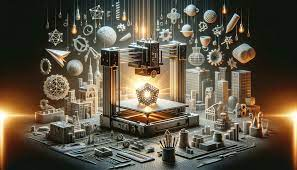Staff Member 1: Lt. Dr. Vishnu Sankar
Biography of instructor/staff member 1:
Lt. Dr. Vishnu Sankar completed his Ph.D. in Thermal Engineering (2023) from CUSAT, M.Tech in Thermal Engineering (2015) with 3rd Rank in aggregate from CUSAT University and B.Tech in Mechanical Engineering (2013) with 7th Rank in aggregate from CUSAT University. Dr. Vishnu, who began his teaching career in 2015 at Holy Kings is currently working as Assistant Professor in Department of Mechanical Engineering at Rajagiri School of Engineering and Technology, Kakkanad from June 2016. He is an approved Research Guide for Doctoral Studies at APJ Abdul Kalam Technological University. Lt. Dr. Vishnu Sankar successfully completed three months Pre-Commissioned Course (PRCN) training conducted from 29th July 2024 to 9th October 2024 @ Officers Training Academy, Kamptee, Nagpur, India and commissioned as Associate NCC Officer with a rank of Lieutenant in the Army wing. Dr. Vishnu Sankar won Gold Medal (First Prize) in Inter COMPANY CHAMPIONSHIP @ Officers Training Academy, Kamptee. He Judged CBSE Regional level Science Exhibition 2016, SAE Mahindra AWIM 2019 JET TOY Competition, Crossroads-15, Crossroads-17 and Crossroads-19. Dr. VISHNU SANKAR (KTU-F20551), Assistant Professor, MECHANICAL ENGINEERING, RAJAGIRI SCHOOL OF ENGINEERING & TECHNOLOGY is an approved Ph.D. Research Supervisor of APJ ABDUL KALAM TECHNOLOGICAL UNIVERSITY from 15/10/2024. The Supervisorship is approved vide University Order No.U.O.No.2606/2024/KTU Dated 27/08/2024. He has published and presented several research papers in the various national and international journals, conferences and seminars, besides having been part of the various funded research projects. He also have 5 granted Patents to his credit. He has more than 232 Google Scholar citations with h-index 7, Research Interest Score of 105.8 and ResearchGate Score of 12.03. He won the "Best Student Award" of Chinmaya Vidyalaya for academic year 2008-2009. He is a Life Member of The Institution Of Engineers India (IEI), The American Society of Mechanical Engineers (ASME) & Indian Society For Technical Education (ISTE). He is one among the ASNT International LEVEL 2 Certified Mechanical Engineer in Ultrasonic Testing, Magnetic Particle Testing, Liquid Penetrant Testing, Radiographic Testing and Radiographic Film Interpretation. He is also one among the National Council for Technology and Training (NACTET) Certified Professional in QA/QC Engineering, Piping Inspection, Project Management, Welding and Oil & Gas. He was Observer under National Testing Agency (NTA) of Government of India Exam for NEET 2023 & 2024 and CUET (PG) 2025 exams. He was also Expert panel member (Evaluator) for the Young Innovators Program (YIP) 4.0 & 6.0 organized by Kerala Startup Mission in association with Kerala Development and Innovation Strategic Council (K-DISC) and Expert Commissioner for District Consumer Disputes Redressal Commission, Ernakulam. His Area of Research interest includes Coatings in I.C Engines, Biodiesel production & testing in I.C Engines, Thermodynamics and Thermal Engineering. He is also one among the few candidates who qualified NPTEL Online Certification course on THERMODYNAMICS by IIT Kharagpur with Elite category certificate, Latex Online Certification course offered by the Spoken Tutorial Project by IIT Bombay, ASME Online course on Standards & Certification and online certification courses offered by Coursera.

